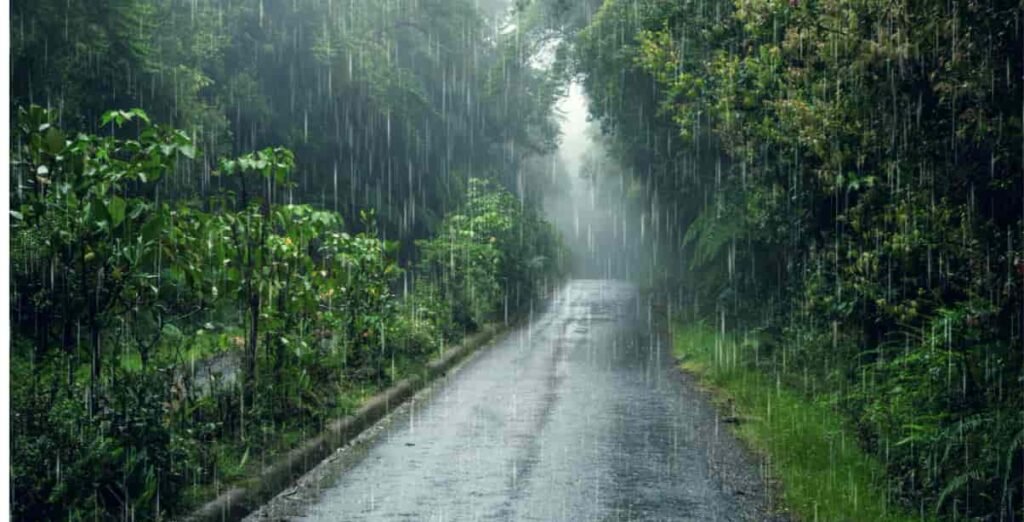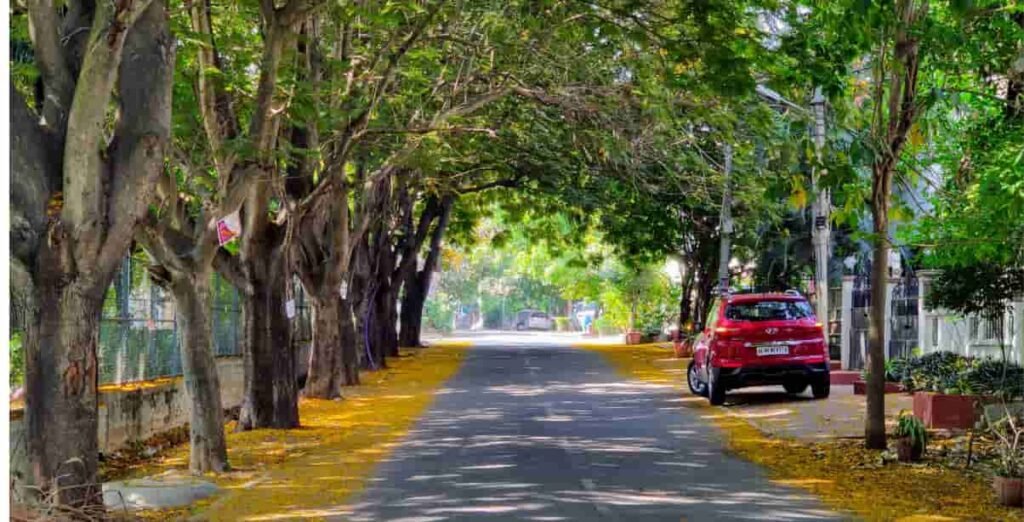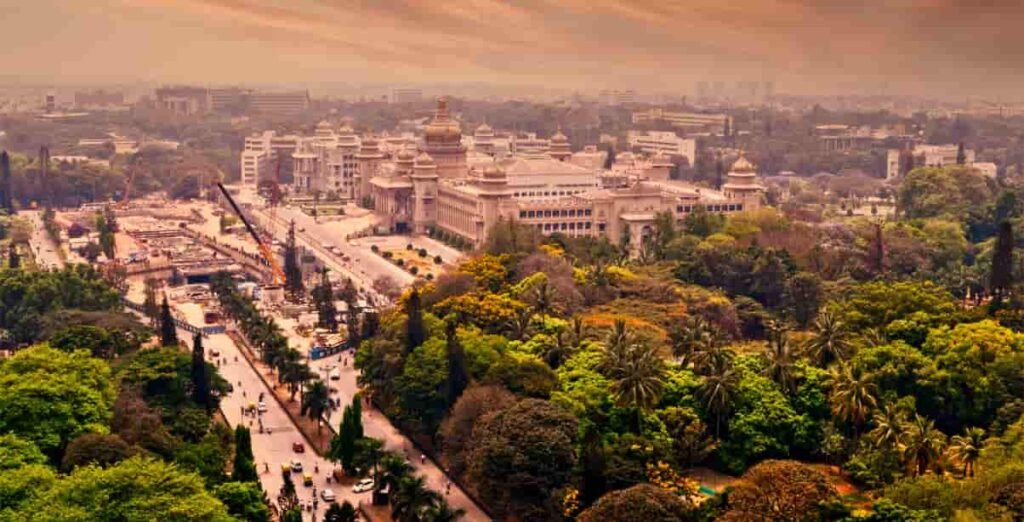Introduction to Bangalore’s Climate
The Garden City and Silicon Valley of India, Bangalore (formerly known as Bengaluru), offers a pleasant climate that is suitable for both residents and visitors. The weather remains pleasant for most of the year and is not as extreme as many other Indian cities. With a mild summer with a refreshing monsoon, and a cool winter, Bangalore is a business and vacation travel destination.
Understanding the Climate of Bangalore
Bangalore’s climate is classified by Köppen as Tropical Savanna (Aw)-Subtropical Highland Climates. Warm summers, a monsoon, and mild winters with moderate temperature fluctuations mean everything is in.
Factors Influencing Bengaluru’s Temperature throughout the Year
- Elevation: Keeps average temperature at lower levels than in the rest of the southern cities.
- Monsoon Winds: They bring in cool rain when they blow between June and September.
- Urbanization: It is nothing but greener. But construction led to a slight rise in the level of temperatures in the past few decades.
Bangalore’s Temperature Throughout the Year
Average Monthly Temperature in Bangalore
The extremes of temperature in Bengaluru and rare weather events.
Extremes of temperatures on hot days, when they happen, amount to just two or three occasions touching the 36-37 degree Celsius mark. At times, the city does experience very early mornings in winter, with the temperature dropping to 12 degrees. Rare events such as light hail storms and sudden rainfalls.
Summer Season in Bangalore (March-May)
Temperature Pattern during Summers
Sizzling days are quite warm but not overpowering. Daytime temperatures fall between 30°C and 35°C. Evenings offer a respite from the heat, allowing one to enjoy outdoor activities.
Best Activities in Summer
- Spend mornings at Lalbagh Botanical Garden.
- Explore indoor attractions like art galleries and malls.
- Spend cool evenings in open rooftop cafes.
Tips for Staying Away from Heat in Bangalore
- Tender coconut water is the best for drinking.
- Wear light cotton fabric.
- Keep outdoor activity timings in the early mornings or late evenings.
Monsoons in Bangalore (June to September)
The Rain of Bangalore – Pattern and Intensity of Falls
Bangalore receives an average rainfall of about 970 mm annually, which is mainly during the southwest monsoon. It mostly rains in short but heavy showers during afternoons or evenings.
Effects of Monsoon on City Life
- Roads become extremely green.
- The traffic slows down at its peak, during rainy hours.
- cooler and more pleasant in the evenings.
Travel Tips When Visiting Bangalore During the Monsoon
- Carry a compact umbrella or raincoat.
- Avoid traveling during hours of heavy rain if you can.
- Visit indoor sights such as cafes and museums.
Bangalore in Winter (October to February)
Winter Temperature Ranges
Winters are mild and pleasant, with temperatures during the daytime reaching around 25°C to 28°C and falling to about 15°C, or even 12°C, on the coldest nights.
Why Winter Is the Best Season to Visit Bangalore
- Perfect weather for sightseeing.
- Outdoor festivals and cultural activities are in full swing.
Famous Winter Events and Festivals in the City
- Bangalore Literature Festival
- Karaga Festival
- Winter Concerts and Outdoor Markets
Monthly Breakdown of Weather in Bengaluru

January to March – Cool and Comfortable
Ideal for outdoor activities, morning walks, and open-air cafes.
April to June – Slowly, but Surely Heating Up
Mornings remain pleasant; afternoons can get warm.
July to September – Monsoon Magic
Rain brings color and life to the city’s gardens..
October to December – Pleasant and Festive
The best time to visit is a mix of good weather and cultural events..
How Bangalore’s Climate Impacts Lifestyle
Influence on Food and Cuisine
Climate dictates the patterns of fresh seasonal eating in Bangalore.
- Summer: Fresh juices, tender coconut water, light meals.
- Monsoon: Hot pakoras, masala chai.
- Winter: Rich curries and quality desserts such as gulab jamun.
Clothing Choices Across Seasons
- Summer: Cotton shirts, light fabrics.
- Monsoon: Quick-dry clothes, rainy-season gear.
- Winter: Light sweaters or jackets for evenings.
Outdoor and Indoor Activities Based on Weather
Mild weather means outdoor markets, music concerts, and sports continue for most of the year. Monsoons will have cafes and indoor places filled.
Comparative Study of Bangalore Weather with Other Major Cities in India

Bangalore vs. Delhi
Delhi faces extreme summer and winter, whereas Bangalore stays moderate throughout the year.
Bangalore vs. Mumbai
Mumbai is hotter because of its coastal location; Bangalore is less humid.
Bangalore vs. Chennai
Chennai is hot and humid, while Bangalore is cool and dry.
Bangalore has a different climate compared to other Indian cities.
Delhi is known for its high summer temperatures, up to 45 degrees Celsius, whereas Chennai offers no relief from its heat all year long. In contrast is Bangalore’s weather, with summer highs that very rarely surpass 35 degrees Celsius. Bangalore’s altitude, its green environment, and the seasonal rains together make its climate among the most pleasant in the entire country.
Best Time to Visit Bangalore
The Best Times to Travel
October to February to visit; truly, this is the recommended period.
Events and Attractions by Season
- Winter flower shows at Lalbagh.
- Food and music festivals
- Outdoor malls for shopping
Travel Routes for Different Times of Year
- Winter Trips: Gardens, heritage walks, markets.
- Summer Trips: Indoor attractions, early morning parks.
- Monsoon Trip: Cafes, museums, and green drives.
Tips for Packing for Bangalore’s Weather
What to Wear in Summer
Consider breathable cottons, and do not forget your trusty sunglasses and sunscreen.
What to Wear in Monsoon
Go for quick-dry clothes and waterproof footwear
What to Wear in Winter
In the evenings, light scarves and sweaters will work.
Weather Precautions for Visitors
Heatwave Safety Precautions
Not common, but stay hydrated, and do not step out in the sun at noon.
How to Avoid Travel Difficulties During the Monsoon
Check forecasts before stepping out, and allow extra time for your travel.
Be Ready to Deal with an Unexpected Change in Weather
The weather can change in a moment in Bangalore, so carry a light jacket or an umbrella.
Local Insights on Bangalore Weather

What Residents Appreciate Regarding the Climate
Mild and nice evenings throughout the year with greenery and no intense cold.
General Complaints Against the Weather
Flooding during monsoon, occasional on-off rain, etc.
How Climate Affects Daily Life in the City
Jogging gets easier, dining outside feels better, and weekend getaways are more possible with the weather.
The Future of Bangalore’s Weather
Impact of Urbanization on Temperature and Rainfall
Urban heat islands are gradually raising the city’s average temperature.
Climate Change and Future Altered Weather Conditions
Forecasts suggest warmer summers and slightly more intense monsoons in the future.
Conclusion
It is the weather that makes Bangalore one of the best places because of a healthy amount of sunshine, rainfall, and mild winters that appeal to both residents and tourists. When the city is visited for business or personal purposes, knowing the seasonal patterns can be useful in taking advantage of the trip.
FAQs
- What is the coldest month in Bangalore?
January is usually the coldest month, with early morning temperatures dropping to 12°C. - Does Bangalore get heavy rainfall?
Rainfall is moderate but can be intense during peak monsoon spells in July and August. - How often does Bangalore experience extreme weather?
Extreme heatwaves and severe storms are rare. - Is Bangalore weather good for tourists year-round?
Yes, though October to February is the most comfortable for sightseeing. - Does the climate of Bangalore affect local food habits?
Yes, seasonal dishes and beverages change with weather patterns, from summer coolers to winter comfort foods.
